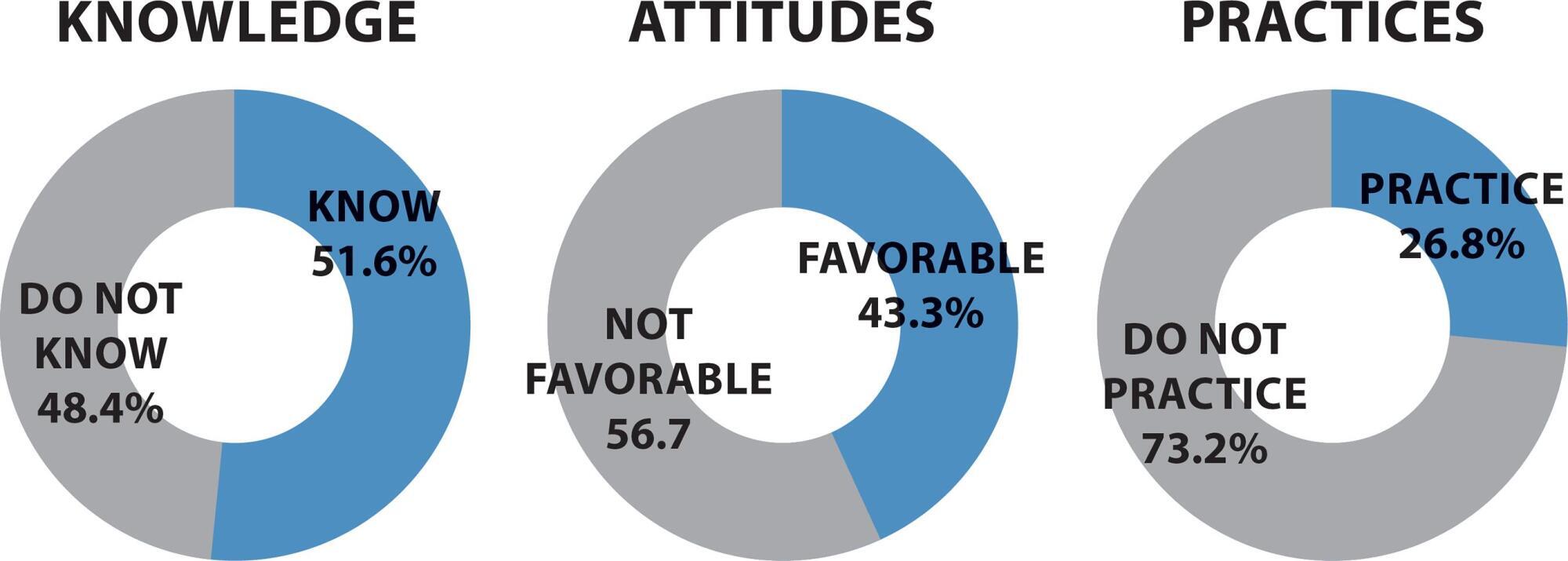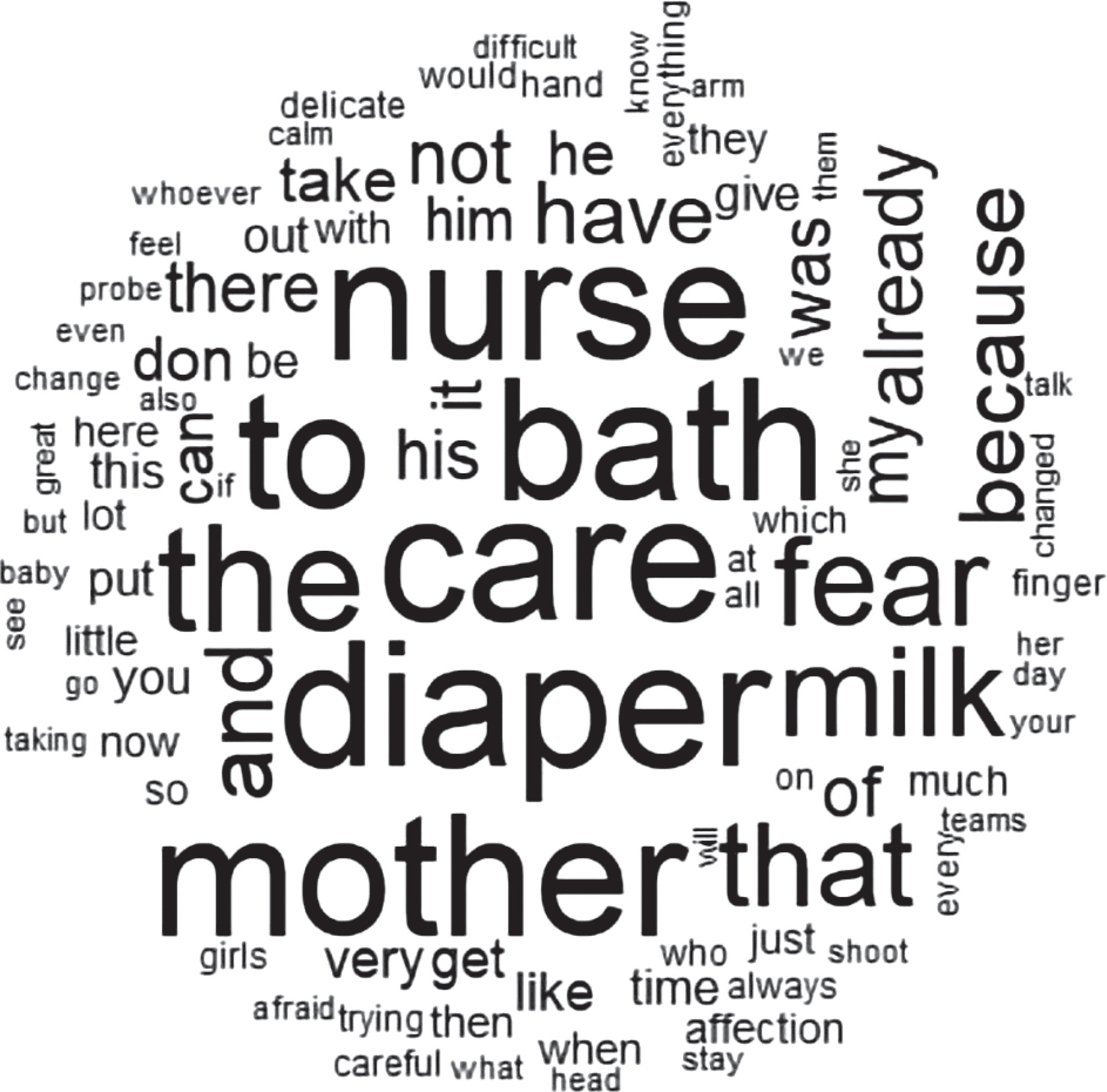-
Learning needs of Nursing students in technical vocational education
Revista Brasileira de Enfermagem. 2015;68(1):20-25
01-01-2015
Abstract
Learning needs of Nursing students in technical vocational education
Revista Brasileira de Enfermagem. 2015;68(1):20-25
01-01-2015DOI 10.1590/0034-7167.2015680103i
Views0See moreObjective:
identify learning needs of students of Technical Vocational Education (TVE) in Nursing. Qualitative study conducted in a city of São Paulo state.
Method:
the subjects were students, teachers and coordinators of TVE and students of the bachelor degree who have had contact with TVE. Data collection was performed by questionnaire socioeconomic and cultural circles about the learning needs. For data analysis we used the content analysis.
Results:
it was found that students have difficulties contents not related to nursing as portuguese and mathematics, as well as introductory courses in the course of TVE which possibly may interfere negatively in learning specific content of nursing and the quality of health care.
Conclusion:
it is necessary to rethink the content taught and ways to teach from basic education, as well as the training of teachers who now works in the TVE.
-
Serious game e-Baby: nursing students’ perception on learning about preterm newborn clinical assessment
Revista Brasileira de Enfermagem. 2015;68(1):13-19
01-01-2015
Abstract
Serious game e-Baby: nursing students’ perception on learning about preterm newborn clinical assessment
Revista Brasileira de Enfermagem. 2015;68(1):13-19
01-01-2015DOI 10.1590/0034-7167.2015680102i
Views0See moreObjective:
to evaluate students opinion regarding e-Baby educational technology.
Methodology:
exploratory descriptive study in which participated a sample composed of 14 nursing Portuguese students that used e-Baby digital educational technology in an extracurricular course. To achieve the aim of the study, the data collection was realized through an opinion instrument in Likert scale including the possibility of commentaries by students. Is was also collected data of participants’ characterization.
Results:
students made very satisfactory evaluations regarding the game e-Baby, varying since usability acceptation through suggestions of expansion of the game to other nursing themes.
Conclusion:
serious game e-Baby can be considered a didactic innovation and motivator tool of learning. Besides, it demonstrates have adequate interface in design and educative function aspects, evocating intense interaction between user and computational tool.

-
EDITORIAL
Challenges beyond the scientific knowledge production
Revista Brasileira de Enfermagem. 2015;68(1):7-8
01-01-2015
Abstract
EDITORIALChallenges beyond the scientific knowledge production
Revista Brasileira de Enfermagem. 2015;68(1):7-8
01-01-2015DOI 10.1590/0034-7167.2015680101p
Views0For several decades, innumerous appeals and reflections on how to build the nursing science and achieve visibility in the scientific world led researchers to make efforts to produce knowledge that contributed to the well-being of people, improving their quality of life, relieving their suffering and transforming the reality in which we live. In addition to […]See more
-
ORIGINAL ARTICLE
Elderly caregiver: knowledge, attitudes and practices about falls and its prevention
Revista Brasileira de Enfermagem. 2019;72:119-126
12-05-2019
Abstract
ORIGINAL ARTICLEElderly caregiver: knowledge, attitudes and practices about falls and its prevention
Revista Brasileira de Enfermagem. 2019;72:119-126
12-05-2019DOI 10.1590/0034-7167-2018-0276
Views0ABSTRACT
Objective:
investigate the knowledge, attitudes and practices of informal elderly caregivers about falls and its prevention.
Method:
this is a descriptive cross-sectional study conducted with 97 informal elderly caregivers residents in areas covered by five Health Strategy Units (ESF) in Cuiabá.
Results:
more than half of the participants are aware of falls and identify them as a problem, as well as they identify some risk factors and prevention measures. Regarding attitudes, more than half of the caregivers do not seem to act effectively to prevent falls. Most of them report adopting practices to prevent falls of the elderly, supervising the activities of their daily lives.
Conclusion:
caregivers know about falls and its prevention, but in a superficial way, and it seems to influence their attitudes and practices regarding the prevention of this event.
Keywords:Accidental FallsAgedCaregiversHealth Knowledge, Attitudes, PracticeHealth Services for the AgedSee more
-
ORIGINAL ARTICLE
The care provided by the family to the premature newborn: analysis under Leininger’s Transcultural Theory
Revista Brasileira de Enfermagem. 2020;73:e20190644
09-21-2020
Abstract
ORIGINAL ARTICLEThe care provided by the family to the premature newborn: analysis under Leininger’s Transcultural Theory
Revista Brasileira de Enfermagem. 2020;73:e20190644
09-21-2020DOI 10.1590/0034-7167-2019-0644
Views0See moreABSTRACT
Objective:
To analyze the care practices of family members of premature infants admitted to a Neonatal Intensive Care Unit in the light of Leininger’s transcultural theory.
Methods:
Qualitative, descriptive and exploratory study. Participant observation and semi-structured interviews were conducted with 16 family members of newborns, admitted to the neonatal unit of a public maternity hospital, during the months of May and June 2019. The software called Interface de R pour analyses Multidimensionnelles de Textes et de Questionnaire® and the Bardin Content Analysis technique.
Results:
Two thematic categories emerged: Family care in the neonatal unit; (in)effective support for shared care.
Conclusion:
The participation of families in the care of babies is still unstable, but it must be an inseparable element of culturally congruent care, thus collaborating with the full recovery of the premature.

-
EXPERIENCE REPORT
Military Nursing in “Operation Return to Brazil”: aeromedical evacuation in the coronavirus pandemic
Revista Brasileira de Enfermagem. 2020;73:e20200297
07-13-2020
Abstract
EXPERIENCE REPORTMilitary Nursing in “Operation Return to Brazil”: aeromedical evacuation in the coronavirus pandemic
Revista Brasileira de Enfermagem. 2020;73:e20200297
07-13-2020DOI 10.1590/0034-7167-2020-0297
Views0See moreABSTRACT
Objective:
to describe the experience of military nursing in “Operation Return to Brazil” in an aeromedical evacuation.
Method:
this is an experience report of the nursing staff in the Aeromedical Evacuation of potentially-contaminated Brazilians who were in Wuhan, China, after the outbreak of the new coronavirus.
Results:
the report was constructed from nursing care performed in three stages: pre-flight, screening, and flight. Pre-flight care would include aircraft configuration and material prediction. In screening, the staff was concerned with being properly attired. In the health assessment of returnees, in-flight, attention was focused on Personal Protective Equipment handling to minimize the risk of contamination by prolonged contact with potentially-contaminated passengers.
Final considerations:
nursing was committed to planning all the actions of this mission, which was one of the longest, strenuous and unprecedented in the history of aeromedical transport in Brazil.

-
ORIGINAL ARTICLE
Adolescents in situations of poverty: resilience and vulnerabilities to sexually transmitted infections
Revista Brasileira de Enfermagem. 2020;73:e20190242
09-21-2020
Abstract
ORIGINAL ARTICLEAdolescents in situations of poverty: resilience and vulnerabilities to sexually transmitted infections
Revista Brasileira de Enfermagem. 2020;73:e20190242
09-21-2020DOI 10.1590/0034-7167-2019-0242
Views0See moreABSTRACT
Objective:
To analyze the association between vulnerabilities to Sexually Transmitted Infections (STIs/HIV/AIDS) of adolescents in poverty and their level of resilience.
Method:
Cross-sectional study with 287 students between 11 and 17 years old in a school in the outskirts of Fortaleza-Ce. The study was conducted from August to October 2016. Three instruments related to characterization, vulnerability to STIs/HIV/AIDS and resilience were used. The association between the instruments was calculated using the Mann-Whitney and Kruskal-Wallis tests. Association between vulnerability to STIs/HIV/AIDS and resilience was assessed through the Spearman’s correlation coefficient. Statistical significance was set at p<0.05.
Results:
There was a significant association between the factors “housing” (p=0.022), “family income” (p=0.037) and vulnerability to STIs/HIV/AIDS. Adolescents whose father has completed high school (p=0.043) have moderately high resilience.
Conclusion:
Adolescents with low socioeconomic status and who live on less than a minimum wage tends to be more susceptible to vulnerabilities to STIs/HIV/AIDS and to have low resilience.
-
REFLECTION
Care in pediatric nursing from the perspective of emotions: from Nightingale to the present
Revista Brasileira de Enfermagem. 2021;74(4):e20200377
06-04-2021
Abstract
REFLECTIONCare in pediatric nursing from the perspective of emotions: from Nightingale to the present
Revista Brasileira de Enfermagem. 2021;74(4):e20200377
06-04-2021DOI 10.1590/0034-7167-2020-0377
Views0See moreABSTRACT
Objective:
Reflect on the evolution of pediatric nursing care from the perspective of emotions, from the conceptions of Florence Nightingale to the present.
Method:
Reflective study based on theoretical and experiential aspects of emotional care in pediatric nursing.
Results:
From Nightingale, there were many definitions regarding the nursing care in an integrative and humanist logic; and with certain bond to emotional dimension. That time, nursing care was based on the religious conceptions of charity and love of our neighbor and, despite the conceptualization that shapes nursing science today, such conceptions have not ceased to be its attribute, mainly in the care of pediatric nurses.
Final considerations:
In pediatric nursing, nurture care with affection and facilitate emotions management in each interaction nurse-child-family is crucial for caring. This emotional care should evolve into a competence that recognizes the expertise and merit of professional action.
-
EXPERIENCE REPORT
Mobile pre-hospital care reorganization during the COVID-19 pandemic: experience report
Revista Brasileira de Enfermagem. 2022;75:e20200826
09-29-2022
Abstract
EXPERIENCE REPORTMobile pre-hospital care reorganization during the COVID-19 pandemic: experience report
Revista Brasileira de Enfermagem. 2022;75:e20200826
09-29-2022DOI 10.1590/0034-7167-2020-0826
Views0ABSTRACT
Objective:
To describe the reorganization of Belo Horizonte’s Mobile Emergency Care Service during the new coronavirus pandemic using the Plan Do-Check-Act quality tool.
Methods:
Descriptive study, of the experience report type, on the reorganization of care in a mobile pre-hospital care service during the new coronavirus pandemic, from March to July 2020. The Plan-Do-Check-Act quality tool was applied for the process.
Results:
Preparation of care protocol, meetings, training, addition of ambulances, hiring of professionals, and other actions were carried out, with subsequent evaluation and monitoring. When failures or new needs were identified, actions and changes were implemented while keeping monitoring and evaluation during the work routine.
Final considerations:
The reorganization of the service through the construction of a protocol and using the Plan-Do-Check-Act as a management tool was essential to promote safe care for professionals and patients.
Keywords:AmbulancesCoronavirus InfectionsEmergency Medical ServicesHealth Services AdministrationPandemicsSee more
-
ORIGINAL ARTICLE
Factors associated with low Apgar in newborns in birth center
Revista Brasileira de Enfermagem. 2019;72:297-304
12-13-2019
Abstract
ORIGINAL ARTICLEFactors associated with low Apgar in newborns in birth center
Revista Brasileira de Enfermagem. 2019;72:297-304
12-13-2019DOI 10.1590/0034-7167-2018-0924
Views0See moreABSTRACT
Objective:
to analyze factors associated with Apgar of 5 minutes less than 7 of newborns of women selected for care at the Center for Normal Birth (ANC).
Method:
a descriptive cross-sectional study with data from 9,135 newborns collected between July 2001 and December 2012. The analysis used absolute and relative frequency frequencies and bivariate analysis using Pearson’s chi-square test or the exact Fisher.
Results:
fifty-three newborns (0.6%) had Apgar less than 7 in the 5th minute. The multivariate analysis found a positive association between low Apgar and gestational age less than 37 weeks, gestational pathologies and intercurrences in labor. The presence of the companion was a protective factor.
Conclusion:
the Normal Birth Center is a viable option for newborns of low risk women as long as the protocol for screening low-risk women is followed.
-
ORIGINAL ARTICLE
Factors associated with normal and cesarean delivery in public and private maternity hospitals: a cross-sectional study
Revista Brasileira de Enfermagem. 2020;73:e20180996
07-31-2020
Abstract
ORIGINAL ARTICLEFactors associated with normal and cesarean delivery in public and private maternity hospitals: a cross-sectional study
Revista Brasileira de Enfermagem. 2020;73:e20180996
07-31-2020DOI 10.1590/0034-7167-2018-0996
Views0See moreABSTRACT
Objectives:
to investigate the factors associated with the mode of delivery in pregnant women in the city of Belo Horizonte.
Methods:
cross-sectional study developed with data from the study “Being born in Belo Horizonte: survey on childbirth and birth” carried out in seven maternity hospitals in Belo Horizonte – Minas Gerais. The final sample consisted of 1088 pregnant/postpartum women. In this study, to verify the magnitude of the association between the outcome variable and its possible determinants (exposure variables) logistic regression models were constructed to estimate the Odds Ratio.
Results:
increasing age, the lack of companionship, the hospital’s private financing for performing delivery and being a first-time pregnant woman increased the chance of delivery by cesarean section.
Final Considerations:
the knowledge of factors associated with the prevalence of cesarean sections can support reflections among health professionals about this surgical procedure in certain situations, especially when there are no precise clinical indications.
Search
Search in:
Nuvem de Tags
Aged (144) Atenção Primária à Saúde (239) COVID-19 (104) Cuidados de Enfermagem (269) Educação em Enfermagem (151) Educação em Saúde (139) Enfermagem (930) Estudos de Validação (131) Health Education (144) Idoso (208) Mental Health (149) Nursing (987) Nursing Care (306) Patient Safety (151) Primary Health Care (284) Qualidade de Vida (104) Quality of Life (106) Saúde Mental (145) Segurança do Paciente (150) Validation Studies (108)



